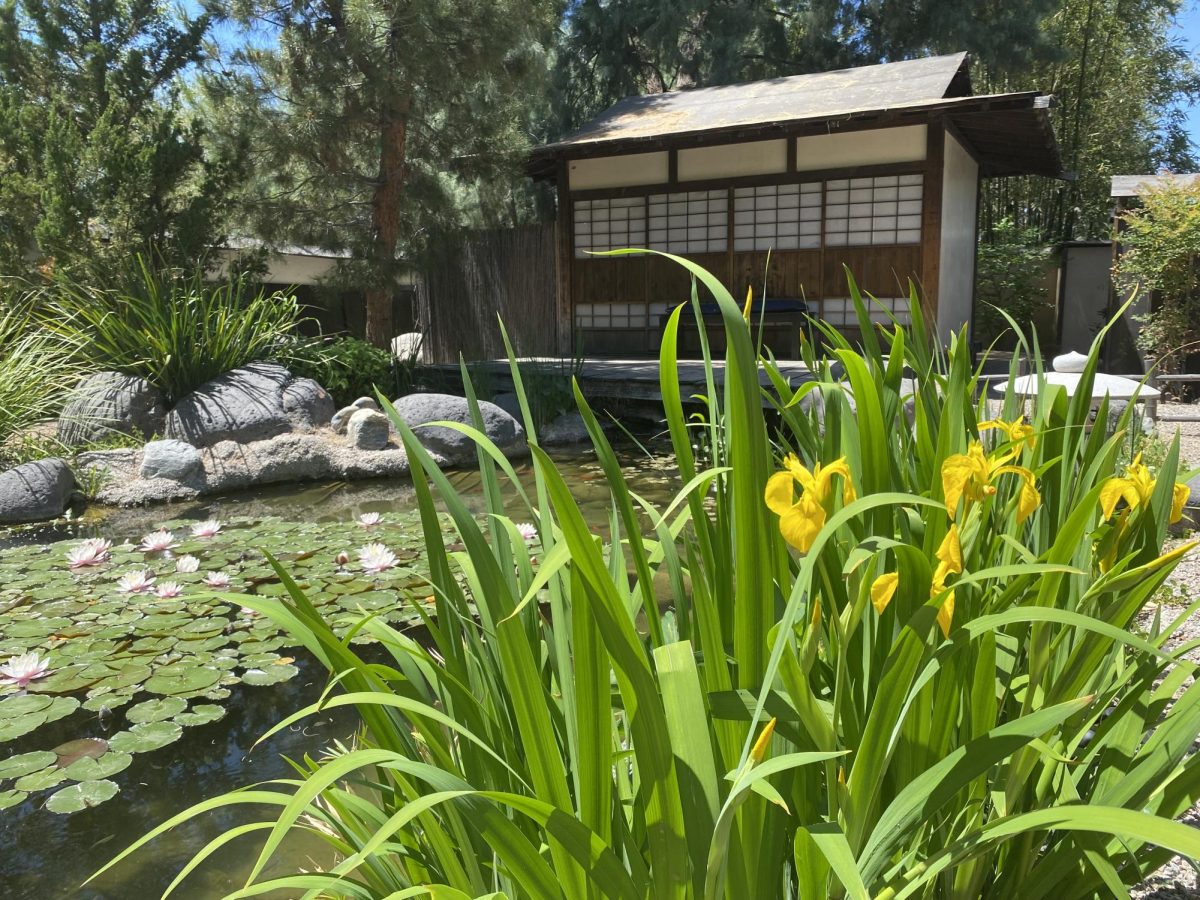
The Yume Japanese Gardens of Tucson's koi pond pictured in spring. Provided by Patricia Deridder
The Yume Japanese Gardens on North Alvernon Way has multiple courtyard-style gardens.
There’s a zen garden, a bamboo garden and more. Water lilies float on top of the koi pond and there’s a tea garden, where you can sit and reflect on the harmony of nature.
Throughout the gardens is Japanese architecture and landscaping that reflect scenes from both Japan and Tucson.
The gardens recently celebrated its 11th anniversary, but founder and owner Patricia Deridder said she’s worried if the garden’s will be around for many more anniversaries.
“I hope we can keep it open and I hope people will come and learn to appreciate it one day,” Deridder said. “It’s not perfect but it has that feeling of homeliness; we’re probably the only (Japanese) garden in the United States that’s trying to reflect that.”
In 2022, the gardens spent $112,000 and brought in only $95,000; Deridder said she doesn’t have the figures for 2023, but business did seem to pick up a bit this year.
Deridder launched the gardens in January 2013 on three-quarters of an acre at 2130 N. Alvernon Way that she inherited from her parents. Deridder, who has degrees in anthropology and archeology, had lived in Japan for over 15 years and wanted to create a place for people looking to enjoy nature and Japanese culture in a quiet and peaceful way.
The gardens, which also includes a museum and galleries, hosts two to three cultural events per month during its season, from October through April. Deridder said the months of February through March are the busiest for the gardens, which are only open Thursdays through Sundays.
Yume is different from sprawling Japanese gardens you find in some bigger cities across the country. Deridde wanted to recreate the courtyard gardens you would find in Japanese homes, specifically in Kyoto, on the island of Honshu.
“That was the whole idea behind creating this garden,” she said. “To be able to promote a place where if you’re a little lost or have had some hardships, you can come to the garden and find new ways to see life.”
Although there are many gardens and parks throughout Tucson, Deridder says she feels there is none like Yume.
But Deridder said parts of the gardens need to be rebuilt and landscaped. Given the gardens’ financial state, she is hoping to get volunteers to help out, but it’s been hard to find people willing to work for free.
Many other Japanese gardens throughout the country, including the Japanese Friendship Garden of Phoenix and the Portland Japanese Garden, are owned by the city, meaning they don’t have to pay for water to keep the plants alive.
Deridder said she has had to replant the gardens four times in the past 10 years because it’s such a challenge to keep the plants alive and healthy in Tucson’s climate.
In 2015, she had to completely remove the grass throughout the gardens.
Deridder said one of the biggest underlying problems is that no one knows the gardens exist because she doesn’t have money to advertise.
“The Japanese garden in Phoenix really is representative of all the ones done in the United States,” Deridder said. “Ours is a little strange in a way, but more representative of the daily lives of people.”
To learn more about Yume, visit yumagardens.org.
Arizona Sonoran News is a news service of the University of Arizona School of Journalism.